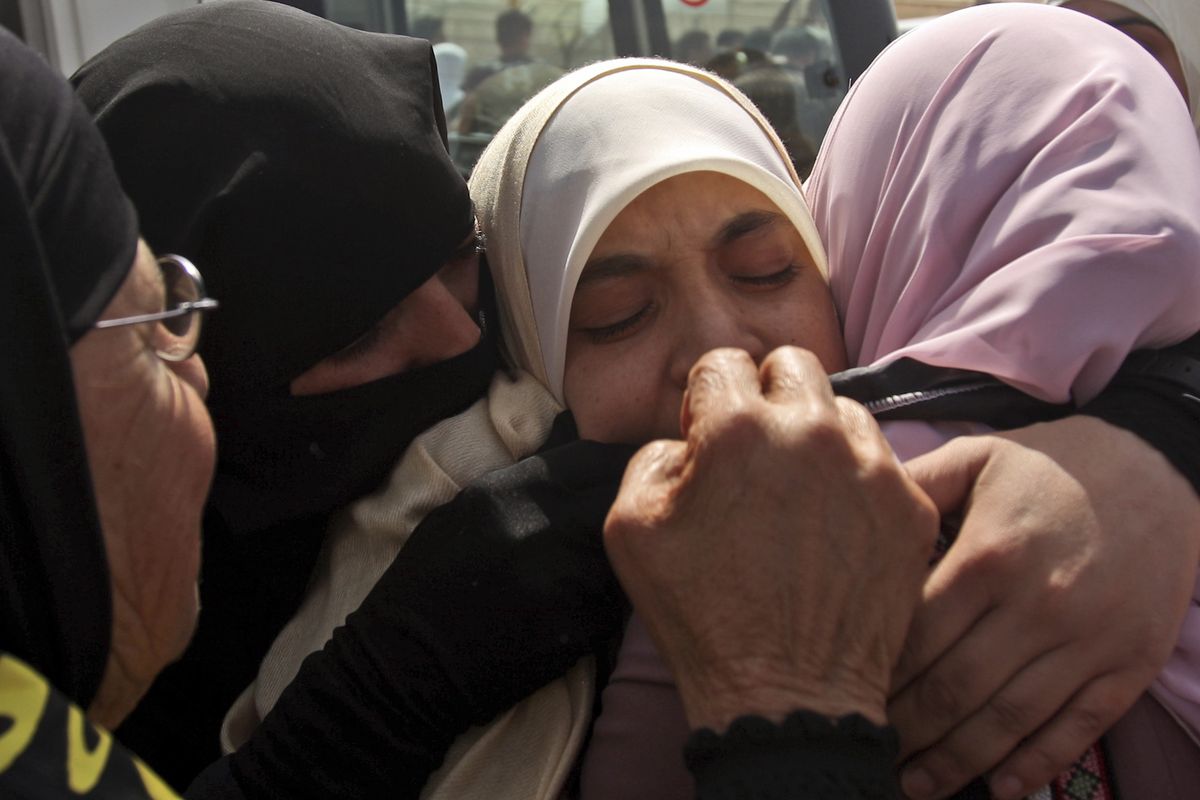Video-for-prisoners swap stirs Middle East emotions
Jailed Israeli seen; Palestinians freed

JERUSALEM – On a day of high emotion for both sides in the Middle East conflict, Palestinians in the West Bank and Gaza joyously welcomed home 19 female prisoners, exchanged with Israel for a video proving that an Israeli soldier captured three years ago and held in a clandestine jail is alive and well.
The video of Staff Sgt. Gilad Schalit was televised by Israeli channels hours after officials judged it to be authentic, riveting an Israeli public that has followed the 23-year-old soldier’s ordeal with deep anxiety. Schalit appeared thin but healthy in the video and said he was being well treated by the Hamas militants who have held him since June 2006.
He spoke in a clear voice, sending love to his family and an appeal to Israel’s leader to “not waste this opportunity” to negotiate his release.
“I have been waiting and yearning a long time for the day I will be released,” he declared, reading stiffly from a Hebrew text in a plastic chair against a bare wall.
Egyptian and German mediators arranged the video-for-prisoners swap, hoping to advance long-deadlocked indirect negotiations aimed at trading Schalit for hundreds of Palestinians accused of militant activity against the Jewish state.
Ismail Haniyeh, prime minister of the Hamas government in Gaza, proclaimed Friday’s exchange “a day of victory” for armed Palestinian resistance against Israel.
He spoke outside his office at a raucous hero’s welcome for Fatima Ziq, a 40-year-old mother of four who had been arrested in Israel on suspicion of plotting to blow herself up. Haniyeh sent a car to the Gaza-Israel border Friday to pick up the woman and the 20-month-old son she bore in prison.
The other 18 freed prisoners, all from the West Bank, received a more subdued welcome from Palestinian Authority President Mahmoud Abbas at his West Bank headquarters. His government played no role in their release, which for many Palestinians enhanced the prestige of his more militant Hamas rivals.
Israeli Prime Minister Benjamin Netanyahu said the video made it clear that Hamas “is absolutely responsible for (Schalit’s) health and well-being.”
He said it would be difficult to cut a wider deal with the Islamic group, which is demanding the release of many militants serving long sentences for fatal attacks on Israelis.
Meanwhile, Israel won a tentative victory Friday when the United Nations Human Rights Council agreed to delay until March a vote on a U.N. report alleging that Israel and Hamas committed war crimes during their cross-border conflict last winter.